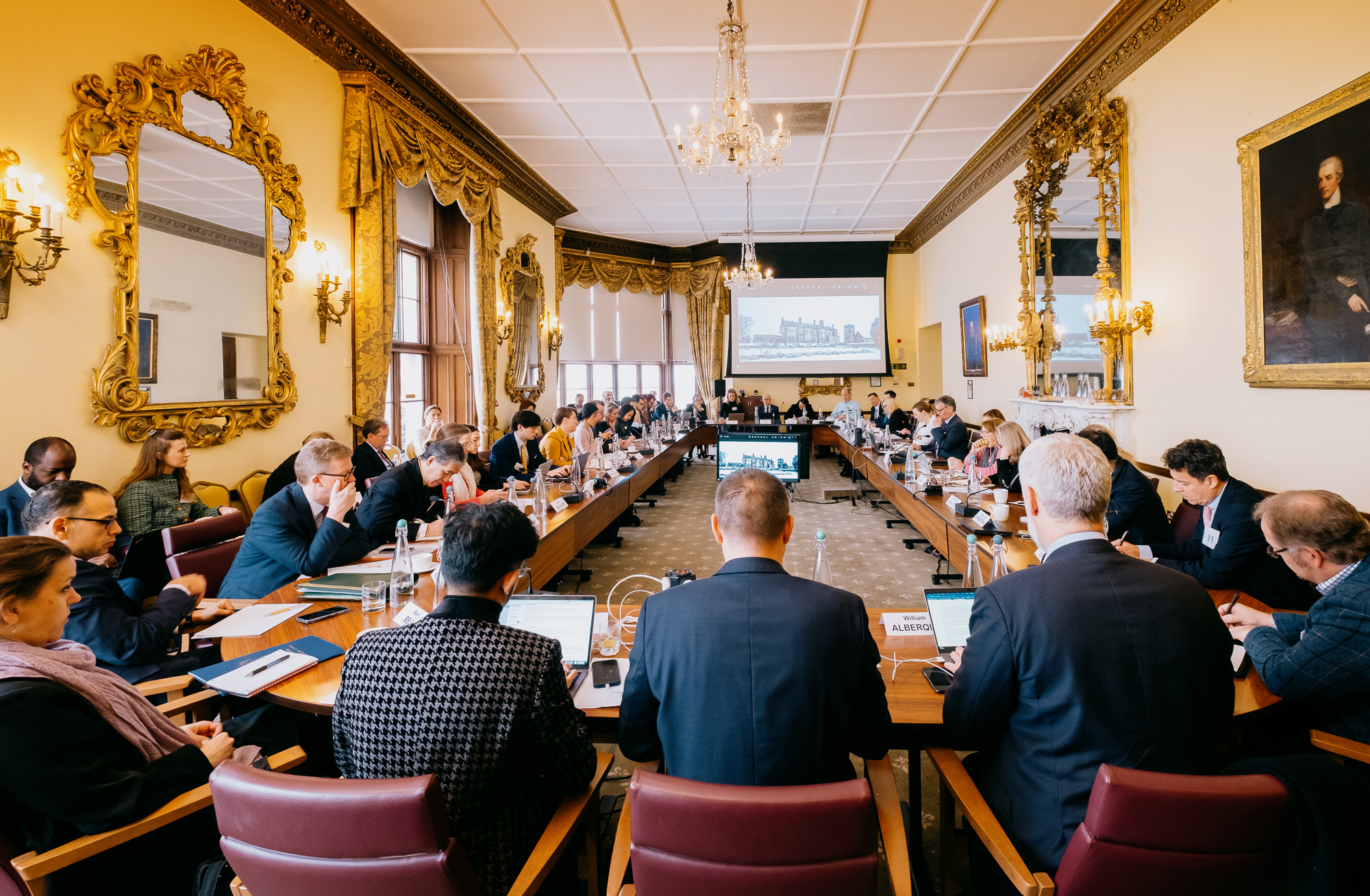- The 2022 draft final document was heavily negotiated, and most states agreed to the language not because it was perfect, but to protect the NPT regime. On the positive side, the document addressed new challenges, such as the security of nuclear reactors in conflict zones and difficulties related to risk reduction. Moreover, there were robust discussions on peaceful uses of nuclear technology as a sustainable alternative to fossil fuels. There was also greater space for bridge building throughout RevCon as well as strong momentum from States Parties, which must be carried forward in the next review cycle.
- However, despite some positives, the 2022 RevCon also highlighted increasingly large obstacles and divides that States Parties will need to address to make meaningful future progress. The impact of the international security environment on the NPT regime and questions regarding disarmament commitments were of particular importance. Russia’s war in Ukraine and blatant nuclear threats strain the NPT regime and raise questions about the Treaty’s future. What happens when a founding member of the NPT issues nuclear threats against a non-nuclear state during a conventional war of aggression? The fact that Russia had offered Ukraine negative security assurances (NSAs) in exchange for relinquishing Soviet nuclear weapons as part of the Budapest Memorandum, is deeply concerning for the NPT. Conference participants raised concerns about how this history could influence future proliferators, especially in the Middle East and East Asia.
- In addition to new challenges from the Russo-Ukrainian war, the NPT RevCon continues to face divisisions between nuclear-weapons states (NWS) and non-nuclear-weapons states (NNWS) related to progress on disarmament commitments. Following the collapse of the consensus final document, many NNWS made statements expressing disappointment at not achieving consensus. These states highlighted that the 2022 RevCon marks the second time NNWS were willing to accept a final document with a weaker disarmament section for the sake of consensus. NNWS continue to feel let down by RevCon and NWS’ steps towards disarmament. The growing distance between the NNWS and NWS is a concerning trend that, if left unaddressed, could lead to further disillusionment with the NPT among NNWS. Since many of the States Parties concerned about disarmament are highly involved in the review process, any reduced engagement on their part could pose a significant obstacle to future progress at RevCon.
- This RevCon also highlighted shifting dynamics within the coalitions of the NPT. Participants noted increasing friction between NNWS as certain states view nuclear deterrence as increasingly vital for their security and are therefore less receptive to disarmament efforts. Frustration among Non-Aligned Movement (NAM) States Parties about the lack of progress towards disarmament further fuelled polarisation. Some states are attempting to use shifting NPT dynamics to their gain. China, for example, has moved from being an observer to the NAM to becoming directly involved in negotiations—a factor that will impact future RevCons.
- In addition to negotiating substantive issues during the 2022 RevCon, States Parties of the NPT established a working group to further strengthen the review process of the Treaty. The working group—open to all States Parties—will examine whether the 1995 strengthened review process is still fit for purpose and will provide the opportunity to discuss and make recommendations about the effectiveness, efficiency, transparency, accountability, coordination, and continuity of the review process. Participants agreed that the current review process faces many challenges related to redundancy, transparency and accountability, and inclusivity. While the delay of the 2020 RevCon was not ideal, it did create time for regional consultations, which served States Parties and the NPT president well. Participants agreed that small group work also allowed for substantive dialogue, as opposed to the exchange of talking points that typically characterises committee parties. Moreover, there were many conversations about the need to maintain and expand the knowledge base pertaining to the Treaty and review process, possibly through experts from civil society. In the future, regional consultations, small group work, and expert consultations might provide opportunities to find commonalities.
- As States Parties confront an international security environment that makes further progress in arms control, non-proliferation, and disarmament difficult, policymakers must consider questions such as how States Parties should consider the security environment in review processes, whether a regional, rather than global, approach for non-proliferation and counter-proliferation the best method moving forward, and the potential opportunities and challenges that emerging and advanced technologies pose for the NPT.
